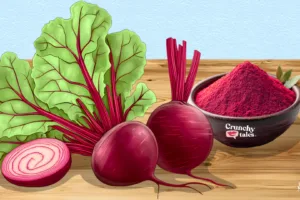Intuitive Eating: Making Peace With Food in Midlife
Aren’t you tired of calorie counting, carb avoiding, and waistline measuring? Welcome to the club! Yes, apart from new inspirations and challenges, midlife could bring us a few extra pounds but the thing is being on a strict diet is not the best option for us. Instead of boot-camps and a drastic regime wouldn’t it be better to make peace with our bodies and our food once for all?
According to data released by the London Centre For Intuitive Eating 2/3 of women in the UK are on a diet; 80% of weight is regained within 5 years after being lost; 60% of people who attempt to lose weight lose less than the ‘clinically significant’ level of 5%; 1/2 of women in a US study experience disordered eating (restricting what they eat, binging, fasting).
It’s time to start a mindful journey of self-discovery and connection to the needs of our body and mind and Intuitive Eating is the way for better psychological health. Evidence shows it improves self-esteem, body image, and overall quality of life while helping people experiencing less depression, anxiety eating disorder behaviours. Essentially, Intuitive Eating is a personal process of honouring health by listening and responding to the direct messages of the body to meet your physical and psychological needs. Eventually, diets don’t work and lifestyle changes and personal care are more important for long-term health.
Intuitive eating is not a diet or food plan, it sets us free from what you should or shouldn’t eat, from the prison of diet culture and weight obsession – says Laura Thomas author of the book ‘Just Eat It‘ and registered nutritionist at the London Centre For Intuitive Eating-. It is basically a system to teach you how to get back in touch with the signals that your body is sending you about food intake. Ultimately, you are the expert of your body.
Intuitive eating gives women power and control over their bodies helping them to reject the guilt and anxiety associated with eating and, ultimately, to help them feel good about ourselves. The bottom line is Intuitive Eating is an anti-diet guide that can help you sort out your attitude to food and ditch punishing exercise routines, relearn how to trust your body and to distinguish between physical and emotional hunger (driven by sadness, loneliness, or boredom).
Intuitive Eating Background
Intuitive Eating is an evidenced-based, mind-body health approach, comprised of 10 Principles and created by two dietitians, Evelyn Tribole and Elyse Resch in 1995.’The Intuitive Eating: A Revolutionary Program That Works’ is their best-seller that made intuitive eating mainstream. That’s not to say that intuitive eating is a guaranteed way to lose weight.
If any health professional or coach or Instagram influencer says you can lose weight with intuitive eating, run away – says the dietician Evelyn Tribole – . No one can tell you what’s going to happen to your body, including me. It all depends on where you already are relative to your body’s natural weight, which might or might not match up with traditional notions of what a healthy weight would be for your height.
According to Healthline.com, the concept has roots in early pioneers like Susie Orbach, who published ‘Fat is a Feminist Issue’ in 1978, and Geneen Roth, who has written about emotional eating since 1982. Before that, Thelma Wayler founded a weight management program in 1973 called Green Mountain at Fox Run, based in Vermont.
Intuitive Eating Basic Principle
From rejecting the diet mentality to honouring your hunger and respecting your fullness, it’s all about making peace with food. Eventually, hunger is not your enemy. Just as your body tells you when it’s hungry, it also tells you when it’s full. Listening for the signals of comfortable fullness when you feel you have had enough, might help.
Promoting pleasure should be also one of our goals of healthy living – suggests Evelyn Tribole-. In our fury to be thin and healthy, we often overlook one of the most basic gifts of existence–the pleasure and satisfaction that can be found in the eating experience. When you eat what you really want, in an environment that is inviting and conducive, the pleasure you derive will be a powerful force in helping you feel satisfied and content. By providing this experience for yourself, you will find that it takes much less food to decide you’ve had enough.
No rules, just practising
To get started with intuitive eating, approach your eating habits without judgment and become more aware of how and when you eat. If you want to learn more, The London Centre For Intuitive Eating has launched a series of courses, including: “Just-Eat-It, Your Intuitive Eating Toolkit“. There are no rules: only simple, practical tools and exercises including mindfulness techniques to help you recognise physiological and emotional hunger.
This self-paced online course covers the ten principles of Intuitive Eating, giving you practical tools, activities, and journaling prompts to deepen your Intuitive Eating practice. Each module builds on the previous one, layering on practical tips, inspiration, advice and most importantly, support as you figure out what Intuitive Eating means for you. You’ll also be added to their member’s only Facebook community where members of the LCIE team are on standby to help answer your questions.




